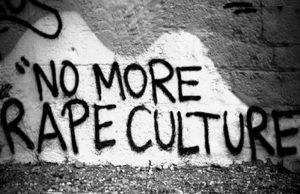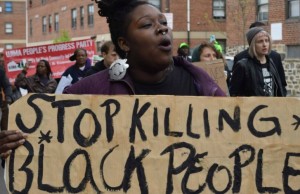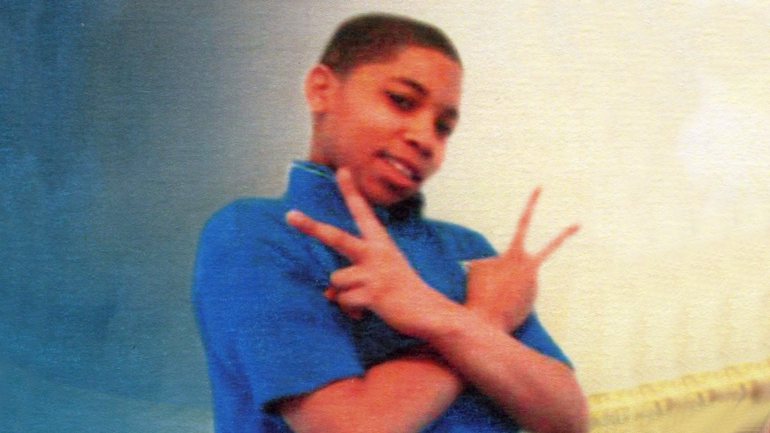The Burdens of Blackness

“It’s not hard being black, it’s just time-consuming is all.”
I recall a schoolmate in undergrad once saying to me, in an attempt to empathize about the difficult struggles of African Americans, that she imagined that it is quite hard being black. I had been describing to her my experiences of alienation while I was studying under a Dartmouth language program in Barcelona, Spain. At age 18, I did not suspect that my first voyage out of the United States would involve strangers picking through my braided hair; encountering “los conguitos,” or the daisy-duke outfitted pygmy chocolate candies Spanish vendors sold on the street; nor could I anticipate my Norwegian housemate’s level of racist comfort, before he complained at the dinner table in front of all who could hear him about Spanish women’s preference for “nigger dick.”
My schoolmate, a girl from Bulgaria, expressed to me that, after taking one or two black history courses back in the States, she had learned to feel sorry for older blacks, who had to bear the pain of a hate-filled past, as their previous persecutors now shared integrated travel space on buses and train with our grandmothers and grandfathers. But, as an Eastern European, she could not imagine that someone my age would be forced to endure similar mistreatment as civil-rights era blacks, especially in a foreign country.
The truth is, like so many people I know, before I had even understood Du Bois’s theory of “double consciousness,” I could count on two hands the number of times I endured these absurd moments, both in and outside of the United States. But, rather than assume the burden, a sort of victimized identity, in each circumstance, I never imagined that the problem lay with my blackness, but rather those individuals whom I obviously needed to check for their ignorance. Like the time I cursed in Spanish a Oaxacan cashier for demanding that I open my purse in order that he might check to see if I had stolen perhaps a 25 cent bag of chips, or a 50 cent bottle of soda from the convenience store. I honestly don’t know who it was or when it was instilled in me that, by right and by obligation, it was my duty to those who would seek to make me uncomfortable in my own skin experience a greater level of humility in the face of a superior form of anger. It could have been my being raised alongside three brothers who made it their own duty to make me “tough.” Or, it could have been those history books that surrounded me in that cramped apartment on the Southside of Chicago, where six of us children shared two bedrooms, hand-me downs, and a weird fascination with the mice for whom we developed games, while they overran our apartment.

I know that my form of militancy—if in word only—is not something that everyone, especially my three brothers and other black men can always afford, as reflected in Questlove’s “Lesson from the Zimmerman Verdict: Trayvon and I Ain’t Shit,” a compelling treatment of American racism and black male alienation.[1] But, something I would have people know is the same thing many a black nationalist and pan-Africanist have over time have tried to drive home. We are not problems, or the problem. In the U.S. and within a worldwide context, the problem is, in fact, the disease of ignorance fueled by a great, if often unconscious, sense of entitlement and superiority. But, however long or exhausting the battle, we can be the solutions. They say “anything worth having is worth the effort.” Or, in the context surrounding one of my favorite quotes by that fiery abolitionist, Fredrick Douglass, in 1857, in a speech that foretold the coming of Civil War (a quote that I posted stridently above my chalkboard when I taught high school history at a predominantly white school in New York),
The whole history of the progress of human liberty shows that all concessions yet made to her august claims have been born of earnest struggle. The conflict has been exciting, agitating, all-absorbing, and for the time being, putting all other tumults to silence. It must do this or it does nothing. If there is no struggle there is no progress. Those who profess to favor freedom and yet deprecate agitation are men who want crops without plowing up the ground; they want rain without thunder and lightning. They want the ocean without the awful roar of its many waters. This struggle may be a moral one, or it may be a physical one, and it may be both moral and physical, but it must be a struggle. Power concedes nothing without a demand. It never did and it never will. Find out just what any people will quietly submit to and you have found out the exact measure of injustice and wrong which will be imposed upon them, and these will continue till they are resisted with either words or blows, or with both.
Douglass’s words were not too dissimilar from that of our third president, Thomas Jefferson, who, although once a conflicted slaveholder, readied would-be revolutionists when he challenged us in “The Declaration of Independence” to throw dynamite, if you will, across the tracks of a “long train of abuses.”
Is it hard being a so-called minority? To this question, I can only imagine that Douglass and Jefferson, who both articulated a vision of rights for once disenfranchised minority groups, would shudder at the questions’ overall insignificance in the face of a drawn-out battles for emancipation and equality. To this question, I imagine that our feminist forebears, Anna Julia Cooper and, though limited in their inability to move beyond their own racist presumptions, Susan B. and Elizabeth C., would also challenge us to think outside of the box when it comes to asserting the rights of a disenfranchised minority.
To wit, I have been asked by friends directly (and indirectly by those skeptical of my “agenda”), whether it is prudent to wear race on my shoulders, especially in this age of increasing diversity. (Or, especially as a single black woman who risks scaring off potential mates.) But, against racism and race, my knowledge of the ways in which race ultimately and unapologetically matters is not something that I can tuck away easily. Nor is it a thing that I desire to hide. Yes, the veil is heavy and, at times, completely and utterly exhausting. Many of us would desire, like anyone else, to have increased those quiet moments when we don’t have to think about the ills that continue to inflict the world. But, for some of us, it has become an accepted way of life. And if time is all we have, then time must be our weapon, until at some point, some place, a merciful God will at last hear our cries!

Tikia K. Hamilton is a doctoral candidate in the History Department at Princeton University. Her research examines black educational activism during the pre-Brown period in Washington, D.C., where she currently resides. She also holds a Masters in African-American Studies from Columbia University, and a degree in History from Dartmouth College. She is a former high school educator, and originally hails from Chicago.




8 Comments